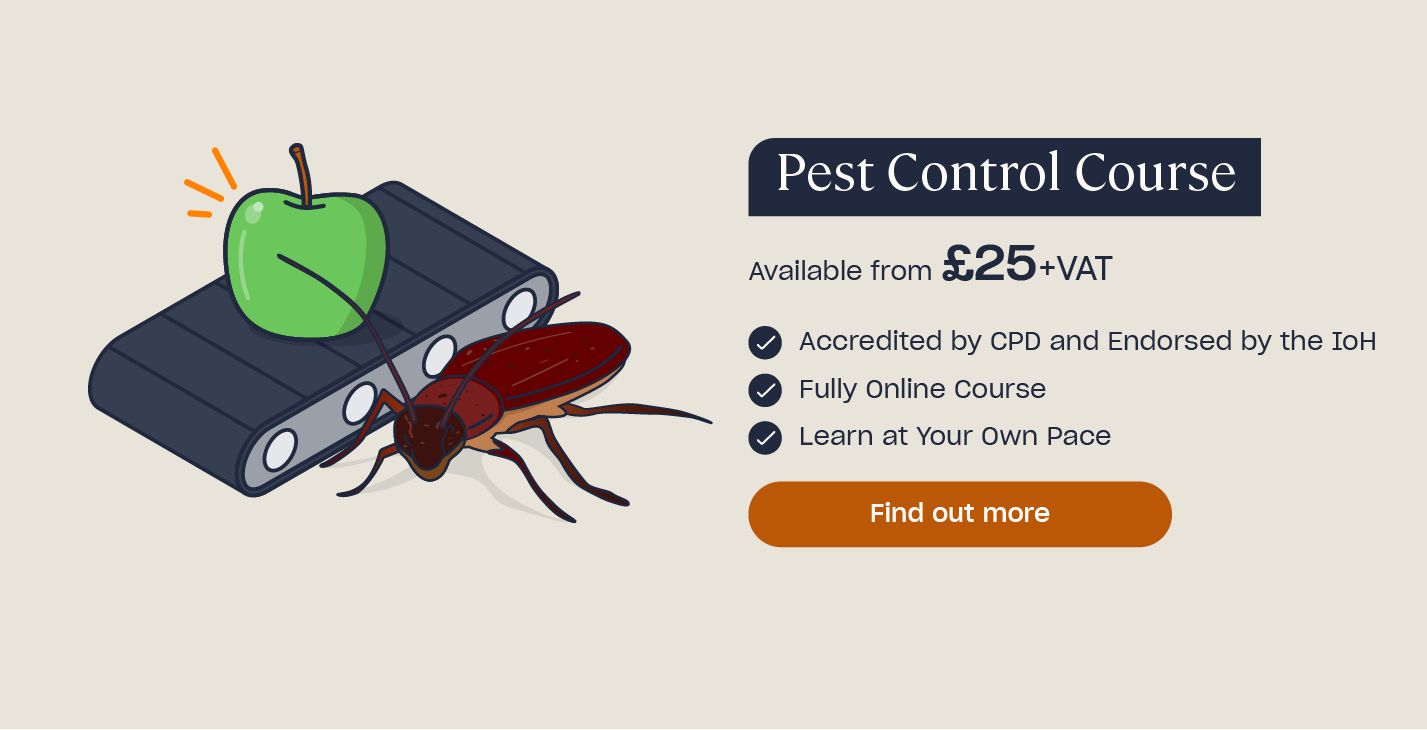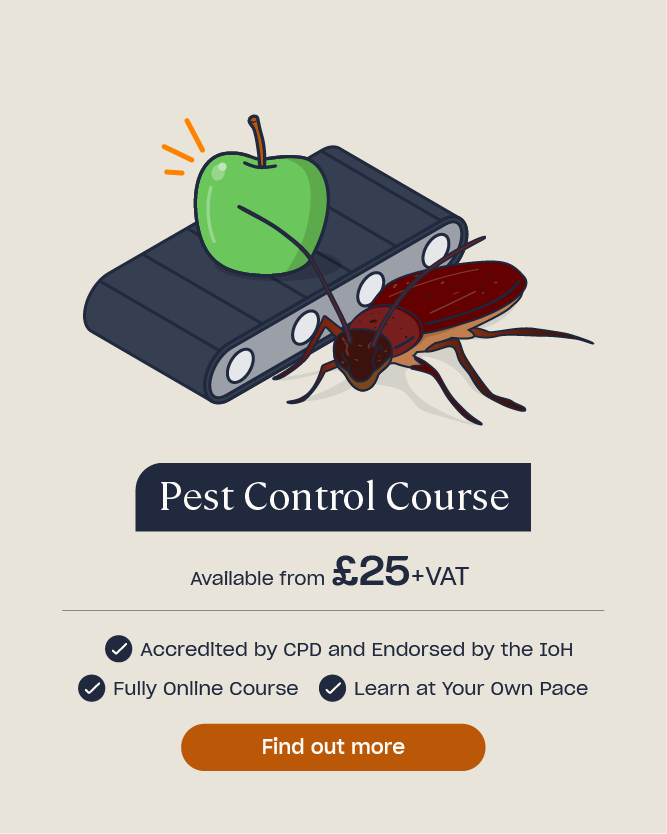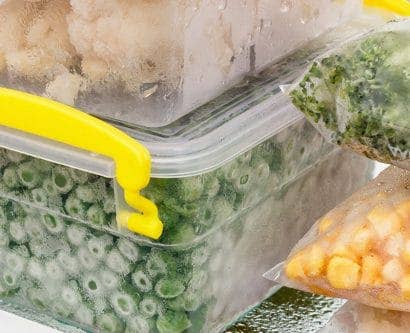Pest Control for Rats in a Restaurant
Pest control methods are essential to ensure high standards of food hygiene and good manufacturing practice. In restaurants, rats and mice are one of the most common type of pest you might find. It is therefore important that you know how to put appropriate controls in your restaurant that will prevent rats and mice from entering.
What are the Risks of Rats in Food Premises?
If rats enter your food premises they are likely to cause many significant problems, and they pose a significant risk to public health. Some rats carry Weil’s disease which, if transmitted to humans, can cause illness such as kidney failure and in severe cases, death. Rats often carry fleas, mites and ticks as well as spreading viruses and bacteria such as E. coli. There is also a risk they may contaminate food and food packaging with urine, droppings and fur.
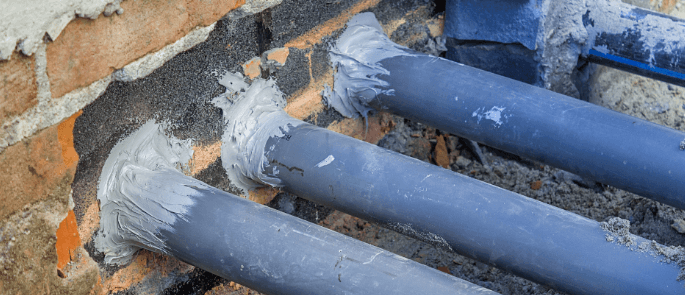
Anyone who visits or works in an establishment that has a pest problem with rats is at risk from these dangers to health.
Young rats can squeeze through a hole 1cm wide, while a mouse can squeeze through a hole the width of a pencil.
As well as posing a danger to people’s health, there is a high risk of pests causing damage to your business. Rats are notorious for chewing through anything in front of them. They have an excellent sense of smell and are attracted to places where there is food and water readily available, such as a food premises. Rats will easily gnaw through wood, plastic, some metals and brick walls. Worse still, they have been known to chew through power cables, causing costly repairs and potential fire risks.
These damages to your property can be expensive to repair. Hiring pest removal contractors and throwing away contaminated stock can also be a significant expense. However, the cost of a damaged reputation due to pest infestation can be even higher.
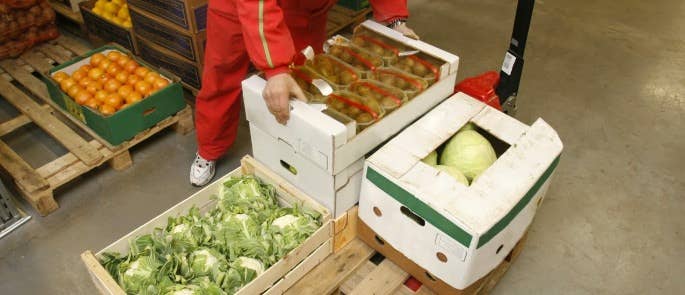
How to Prevent Rats in Your Restaurant
Both rats and mice will leave telltale signs of their presence in your restaurant. You might spot droppings, see scratch or gnaw marks on walls or on food packaging. You may also smell rodent urine, which has a strong, musky odour similar to ammonia.
The urban legend that you are never more than six feet from a rat may be a myth, but there is truth in the claim that rats are ever present.
Dissuading rats from entering your premises in the first place is one of the most effective methods of pest control. If you spot signs of a rodent infestation you will need to halt the business and call a pest controller.
If you do have an unwanted visitor, you should avoid having an environment that may encourage them to stay. Rats will thrive with a steady supply of food and water, and shelter from predators. Implementing effective pest control procedures in your business can be done in a number of ways, which we will explore below.
Maintain Robust Food Safety Systems
The Food Safety Act 1990, the Food Hygiene Regulations 2006, and the European Union Regulation (EC) No 852/2004 on the hygiene of foodstuffs are the main food safety regulations in place in the UK. To conform with this legislation, you must have a HACCP food safety management system in place.
Pest control methods form a major part of your HACCP system. Minimising the risk of pest contamination of foodstuffs is integral to your food safety procedures and Good Manufacturing Practice (GMP).
Because of this, pest control needs to be a regular part of your checks, and you should keep a record for your due diligence. You may have a contractor to help with your pest control system but remember, in a managerial position, it remains your responsibility to ensure good practices are observed.
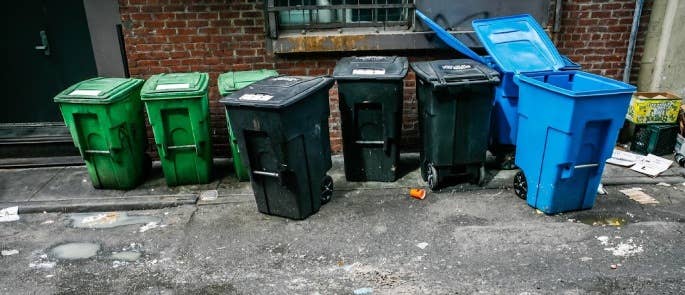
Increase Staff Awareness
Well trained staff can help prevent a rodent infestation too. Implement a ‘Clean as You Go’ policy, so that spillages are cleaned up straightaway. Make sure your staff are aware and follow this procedure at all times.
If any of your staff see rats, mice, droppings, or greasy smear marks on the walls, shelves or other surfaces, they should inform the manager right away.
Likewise, if they notice any damage to the building, such as gnaw marks on doors, or any damage to food packaging, they should tell their manager immediately.
Staff who know and understand the risks of having rats in a restaurant will be more vigilant to spotting signs of them. Recording sightings should be something all staff know how to do. Remember to keep a record of staff pest control training for your due diligence.
Need a Course?
Our Pest Control Course explains how to identify common pest species, including insects, rodents, animals and birds, and outlines how staff can take action to prevent pests from becoming a problem.
Remove Their Food Source
Food waste is generally what will attract rodents in the first place. You should place your food waste in locked bins, which should be emptied regularly. Never leave bin bags next to your bins, as rats and mice can gnaw through them easily. Don’t store any waste inside your building. Instead, take any waste out to your bins as soon as possible.
Most restaurants will have a bin area outside the back doors, but if you can, keep your bins away from your doors. It is important that bin areas are regularly cleaned, and that there isn’t a build-up of unused objects, such as pallets and oil drums.
Check stored ingredients and where possible, store ingredients in sealed containers. Keep all produce off the floors and inspect and rotate stock regularly. Food storage locations should be a secure place with no holes or gaps in the walls, around the windows or around doorways. They should also be cleaned regularly.
By removing the attraction, you will help prevent rats and mice from coming into your premises.
Remove Their Water Supply
Mice can take enough water from the food they eat, but rats need access to a regular supply. Make sure you fix any dripping taps, or leaks you may have in your restaurant, and don’t leave water lying around.
Rats and mice will also come in through cracked drains. If you have any problems with your building maintenance, call the relevant authorities right away. Eliminate standing pools of water, and be sure to pest-proof any drainage holes.

Remove Their Shelter
Don’t allow non-food waste to build up, remove boxes from your premises and place into locked bins. Bins should never be overflowing as it will encourage all kinds of pests to visit.
Check all your restaurant entry points for example windows, doors, ventilation inlets / outlets and drains. Look at how to minimise the risk of rodent entry, such as self-closing doors, drain traps or chute end flaps. Doors may have a maximum gap of 5mm to prevent rats or mice from entering through.
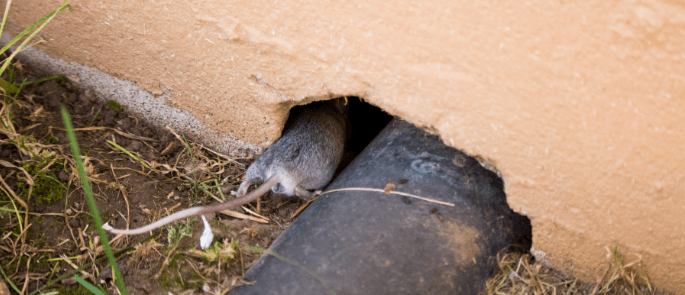
Keeping up to cleaning duties could go a long way in helping you reduce the risk of pests in your restaurant. Download and print our free Restuarant Cleaning Schedule Template to help you and your staff stay accountable.
Rodenticides
If rodents are found on your premises, you need to take action to destroy and eradicate them. One way to do this is through the use of pesticides, or rodenticides- which are specifically for rats and mice.
Any rodenticides which are kept on the premises need to follow the manufacturer’s instructions. They must be approved products and used with caution by staff. Chemicals always need to be stored safely, so there is no risk of contamination with food. Most baits from domestic retailers are not suitable for use by food businesses.
If in-house staff are using the rodenticides, they need to be professionally trained and certified to handle the chemicals and to carry out rodent control procedures.
You may choose to employ a contractor to take care of this, as expert advice is needed with regards as to where to lay down traps, as well as what kind or trap and bait is best to use. Contractors will keep a record of where traps are, how often they are checked, and if there has been rodent activity. They will also document the next steps taken should there be any evidence of rats.
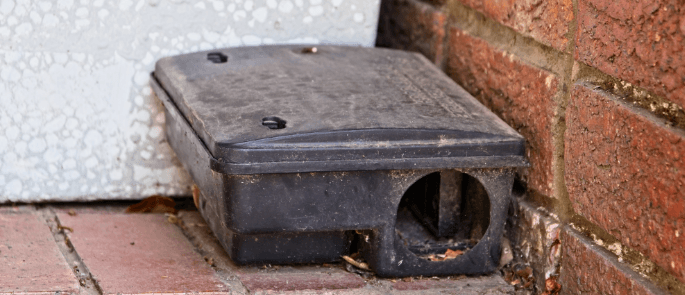
Whatever pest control services you need, you should look for a company who is registered with a body such as the British Pest Control Association, or other similar trade association.
A good pest-control provider will give you advice about potential problems, carry out work, and monitor and report results.
As the owner or manager of the business, pest control is your responsibility to manage. Try to get into a routine of checking your restaurant for any signs of rodents, as has been outlined here.
Rats are just one of the many types of pests that could threaten your restaurant business. To learn more about different pests, your legal responsibilities and how to follow appropriate pest control measures, take a look at our Pest Control Course.
What To Read Next:
- What is the Difference Between Food Hygiene and Food Safety?
- Pest Control Online Course
- Pest Control Quiz


